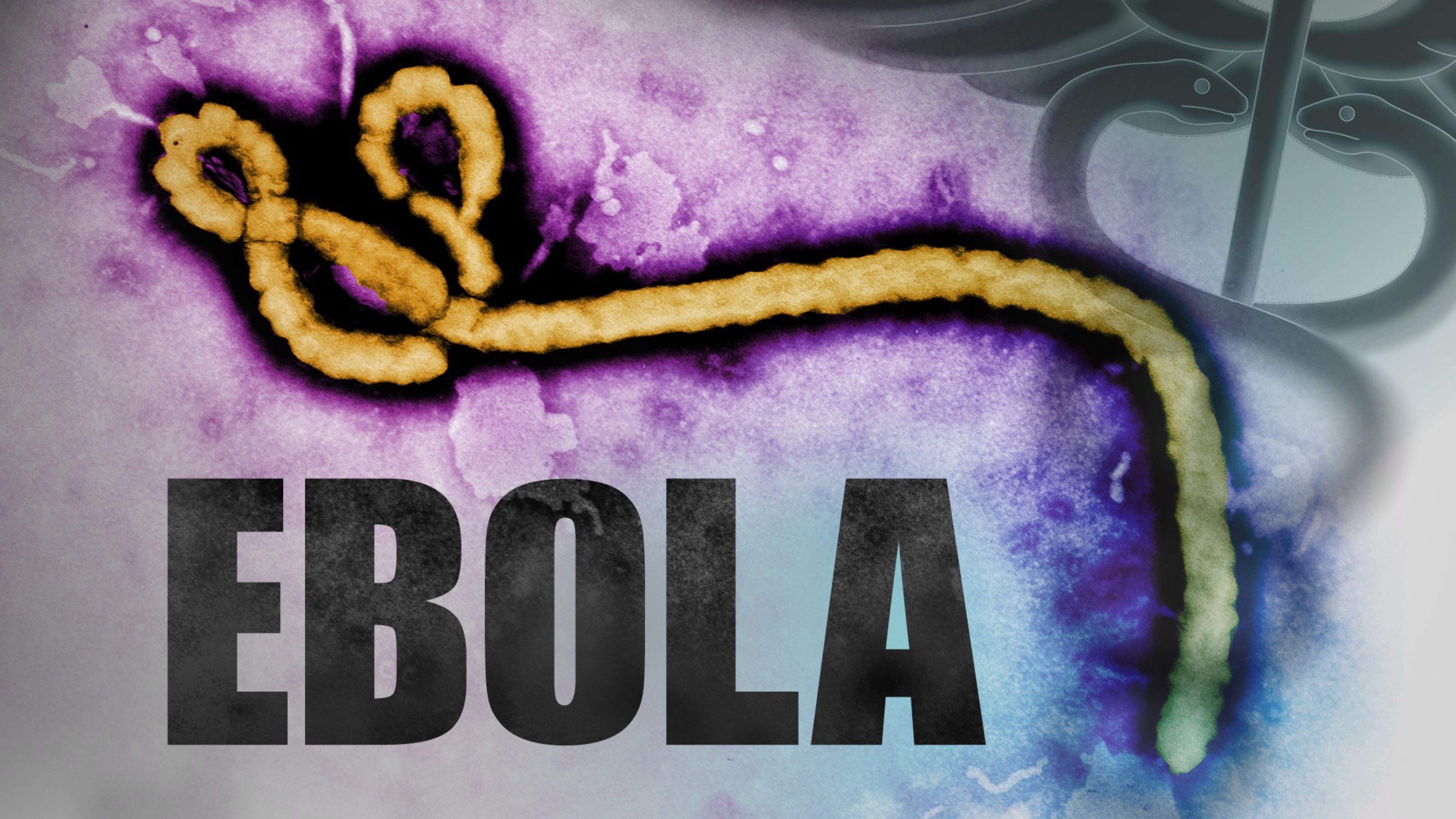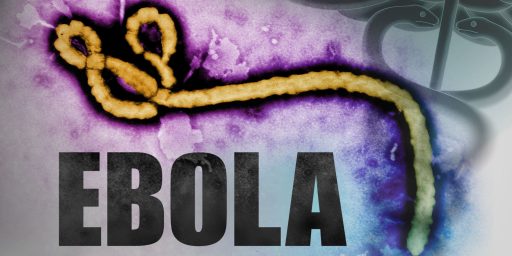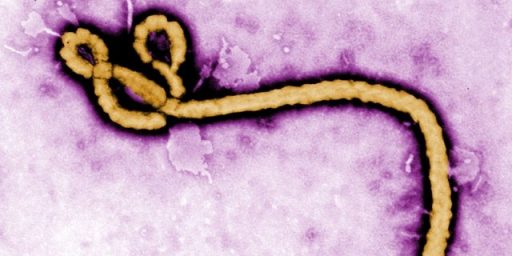Central African Ebola Outbreak Appears To Be Contained
An Ebola outbreak that started last month in Central Africa appears to be contained. You can thank an aggressive vaccination campaign for that.
 Ebola outbreak in Central Africa that once threatened to spread to major cities has been largely contained according to public health authorities:
Ebola outbreak in Central Africa that once threatened to spread to major cities has been largely contained according to public health authorities:
After a rapid response by health agencies and the rollout of a new vaccine, an Ebola outbreak in the Democratic Republic of Congo has been declared “largely contained” by the World Health Organization.
The outbreak was the first in which health authorities deployed a Merck vaccine field-tested in the waning days of the huge 2014 epidemic in West Africa.
More than 3,200 people were vaccinated in Congo; they included front-line health care workers, as well as family members and friends who had been in contact with known Ebola victims.
None of those vaccinated became ill, the Congolese health ministry said.
As of Tuesday, 53 cases that were laboratory-confirmed or considered “probable” had been detected, and 29 patients had died, according to the ministry. Although suspected cases continue to be reported, none have been confirmed by a laboratory since June 6.
As of Wednesday more than 1,500 contacts of the confirmed or probable cases had been followed for 21 days and had not displayed Ebola symptoms, the W.H.O. said. Three weeks is considered the maximum incubation period for the infection.
Nonetheless, the outbreak will not officially be declared over until at least one more 21-day incubation period has passed, and the Congolese health ministry will continue surveillance after that.
Some men who recover from Ebola retain virus in their semen for weeks and can pass it on through sex, although that has never triggered a large outbreak.
The outbreak appears to have begun with a cluster of 21 cases of illness and 17 deaths in April in the remote Ikoko-Impenge rural area. It was officially declared an Ebola outbreak on May 8, when lab testing done in Kinshasa, Congo’s capital, confirmed that two patient samples had the virus.
This was the ninth Ebola outbreak in Congo since the disease was first discovered in 1976, but it was brought under control in seven weeks even though cases quickly reached a major city — Mbandaka, a river port with over 1 million people.
Only four cases were found in Mbandaka, and the vaccine was rolled out there almost immediately. It took much longer to get the vaccine to scattered villages that could be reached only by motorcycle.
The W.H.O. deployed 258 experts to fight the outbreak. Three mobile laboratories and four treatment centers were set up; three centers were run by Doctors Without Borders, and the fourth by the medical charity Alima, the Alliance for International Medical Action.
Four experimental treatments for Ebola were sent to the region: ZMapp, which was tried in West Africa; GS-5734, an antiviral drug; and two monoclonal antibodies, REGN-EB3 and Ma b114. But the outbreak waned before definitive clinical trials could be run.
Sixty children were orphaned in Congo. Twenty-four people were cured, and a follow-up clinic for them was established.
This latest outbreak, which was apparently the first major reported outbreak since the one in West Africa that managed to spread as far as the United States and the United Kingdom, was first reported in early May. It also followed another small outbreak that took place last year in the Democratic Republic of Congo that was relatively quickly contained using many of the techniques that were learned during the 2014 outbreak. Within a week, it was reported that cases had spread to a major city in Congo. That news was obviously concerning because it is far more difficult to contain the spread of a disease like Ebola in a densely populated metropolitan area than it is in the more rural areas that Ebola has ordinarily popped up in before this outbreak. This is especially true if the city in question has less than ideal living conditions and poor sanitation. Thus, the news that the disease had spread into a major city last month raised obvious concerns. Fortunately, it appears as though public health authorities were able to move quickly enough to deal with the outbreak even in an urban environment.
The fact that the disease has been so effectively contained for the second time strongly suggests that public health authorities have learned tremendously from what happened in 2014 and that hopefully means that future. One reason for that is the fact that, due largely to what authorities learned during the 2014 outbreak, we now have several versions of an Ebola vaccine that is as close to being 100% as seems medically possible. The key was whether authorities would be able to get that vaccine where it needs to be and whether they’d be able to make sure that enough people are inoculated to establish the kind of “herd immunity” that would prevent the outbreak from spreading. As with the outbreak last year in the DRC it appears that these vaccines are working. Hopefully, that will be a good sign for the future.



Learned… you know Africa is not one single place mate.
The Central African authorities, unlike those in Sierre Leone, Guinea Conakry, and Liberia, all have had decades of experience and exposure to Ebola outbreaks.
Unlike those West African countries cited above, which never had (nor did the health NGOs operating in that region).
The Congolese health operators – public, NGO, international – all have substantial historical experience in Ebola. As I said in your original panicky note, there was about zero chance of seeing the West African scenario there.
It’s like comparing the Yellow Fever responses in Haiti to Mexico – yes same hemisphere, but f-all of comparability.
Pfft. Vaccines schmaccines. I bet Gwyneth Paltrow’s GOOP airlifted a buncha essential oils and Jade Eggs into the region.